Deleted Scenes: What October 31 is all about. Romans 2:1-16
A Note From Craig...
This post is going out on October 31, and we all know what day October 31 is, don’t we? Reformation Day! Everyone knows that on this day, little children dress up like their favourite Protestant Reformation character (the classic is Martin Luther, but it’s way more fun to dress up as King Henry VIII or Queen Elizabeth I). They then go door to door, nailing hand-written lists of suggestions for the reformation of the church so all their neighbours can share in the joy. Later in the evening, children and adults traditionally hold pretend church councils where the adults interrogate children about the orthodoxy of their beliefs. It is truly a night to remember.
Can you imagine if that was the case, if that’s what actually happened in neighbourhoods on this day? Seems like a fun idea, though probably traumatic, especially the church council part. However, October 31 really is “Reformation Day”. It is the day in 1517 (507 years ago today) that a German Roman Catholic monk named Martin Luther set in motion an event with enormous consequences for the world. At the time, the Roman Catholic Church had been plagued with corruption and theological decay. Pope Leo X (who coincidentally had a pet elephant, which is not totally relevant, just interesting) wanted to engage in some significant building projects. To get the money, he promoted the sale of “indulgences”. That meant that people could donate money to the church and in return have some of the penalty for their sins reduced. The more you give, the less time in purgatory you spend. For a little while already leading up to this, Martin Luther had a very different idea of forgiveness. He had experienced a breakthrough when studying Romans 1:17, which talks about the righteousness of God being revealed by faith. He had understood then that salvation from God was not something you could work towards (and certainly not pay for financially) but a free gift through Christ. When he heard about this new campaign of indulgences coming down from the Pope, Luther knew he had to respond.
He wrote up 95 theses against this practice of indulgences, a list he called the “Disputation on the Power and Efficacy of Indulgences”. He wrote it in Latin and posted it on the door of the castle church of his home town of Wittenberg, Germany. He wrote it in Latin because he thought it would only be of interest to academics and priests. He didn’t think it would cause a big stir. But somebody translated it into German, others began running it through printing presses (a relatively recent phenomenon), and it began to spread throughout the land. Partly because of the intense opposition he encountered (including a number of adversarial church councils), Luther continued to write and develop a theology that was rooted in the Scriptures rather than in accumulated centuries of Catholic tradition. The movement spread and branched out in all kinds of directions, ultimately resulting in the Protestantism we see today. The Bridge Church is part of that legacy, and it all started with a priest nailing a bunch of ideas to a church door on October 31.
In Romans 2:1-16, which I preached last Sunday, we talked about the self-righteous judgmentalism that can plague religious insiders. We think we are saved because we are moral and try to do the right thing. We fall into the “older brother” mentality in Jesus’ parable in Luke 15, looking down on those who don’t seem to have it all together like we do. This is one of the things that can happen with religious people. It would seem that Martin Luther was aware of that in himself, and he saw it in abundance in the Catholic Church of his time. The insight that changed everything for Luther was, again, to understand that his right-standing with God could not be based on religion, or on adherence to tradition, or on the word of the Pope. It was by faith through and through, and this was the best news possible.
We may live more than 500 years after the fact, but reformation was not a one time historical thing. We all need continual re-formation in the gospel. For many people, our natural tendency seems to be slip back into moralistic religion and to find some way of justifying ourselves before God and others. Grace, as beautiful as it is, grates against our bent towards self-sufficiency. So today, on October 31, whether you nail any documents to any doors in your community or not, nail the gospel to your heart. Remind yourself that you are a sinner saved purely by the grace of our good God.
Can you imagine if that was the case, if that’s what actually happened in neighbourhoods on this day? Seems like a fun idea, though probably traumatic, especially the church council part. However, October 31 really is “Reformation Day”. It is the day in 1517 (507 years ago today) that a German Roman Catholic monk named Martin Luther set in motion an event with enormous consequences for the world. At the time, the Roman Catholic Church had been plagued with corruption and theological decay. Pope Leo X (who coincidentally had a pet elephant, which is not totally relevant, just interesting) wanted to engage in some significant building projects. To get the money, he promoted the sale of “indulgences”. That meant that people could donate money to the church and in return have some of the penalty for their sins reduced. The more you give, the less time in purgatory you spend. For a little while already leading up to this, Martin Luther had a very different idea of forgiveness. He had experienced a breakthrough when studying Romans 1:17, which talks about the righteousness of God being revealed by faith. He had understood then that salvation from God was not something you could work towards (and certainly not pay for financially) but a free gift through Christ. When he heard about this new campaign of indulgences coming down from the Pope, Luther knew he had to respond.
He wrote up 95 theses against this practice of indulgences, a list he called the “Disputation on the Power and Efficacy of Indulgences”. He wrote it in Latin and posted it on the door of the castle church of his home town of Wittenberg, Germany. He wrote it in Latin because he thought it would only be of interest to academics and priests. He didn’t think it would cause a big stir. But somebody translated it into German, others began running it through printing presses (a relatively recent phenomenon), and it began to spread throughout the land. Partly because of the intense opposition he encountered (including a number of adversarial church councils), Luther continued to write and develop a theology that was rooted in the Scriptures rather than in accumulated centuries of Catholic tradition. The movement spread and branched out in all kinds of directions, ultimately resulting in the Protestantism we see today. The Bridge Church is part of that legacy, and it all started with a priest nailing a bunch of ideas to a church door on October 31.
In Romans 2:1-16, which I preached last Sunday, we talked about the self-righteous judgmentalism that can plague religious insiders. We think we are saved because we are moral and try to do the right thing. We fall into the “older brother” mentality in Jesus’ parable in Luke 15, looking down on those who don’t seem to have it all together like we do. This is one of the things that can happen with religious people. It would seem that Martin Luther was aware of that in himself, and he saw it in abundance in the Catholic Church of his time. The insight that changed everything for Luther was, again, to understand that his right-standing with God could not be based on religion, or on adherence to tradition, or on the word of the Pope. It was by faith through and through, and this was the best news possible.
We may live more than 500 years after the fact, but reformation was not a one time historical thing. We all need continual re-formation in the gospel. For many people, our natural tendency seems to be slip back into moralistic religion and to find some way of justifying ourselves before God and others. Grace, as beautiful as it is, grates against our bent towards self-sufficiency. So today, on October 31, whether you nail any documents to any doors in your community or not, nail the gospel to your heart. Remind yourself that you are a sinner saved purely by the grace of our good God.
- Craig

Recent
Sabbatical Reflection 2: Familia Sagrada, Amphitheater, and Alcossebre.
February 3rd, 2026
Sabbatical Reflection 1: Salt Spring and Mexico.
January 21st, 2026
What we talked about at the congregational meeting
November 26th, 2025
What October 31 is all about
October 27th, 2025
What are your gifts?
September 24th, 2025
Archive
2026
2025
January
February
March
April
May
July
August
October
2024
January
February
March
April
May
June
July
August
September
October
Deleted Scenes: Why Paul wrote a letter to a church he didn’t knowDeleted Scenes: What's Your Constant Prayer? Romans 1:8-17Deleted Scenes: The Eye of the Tiger. 2 Chronicles 20:1-30Deleted Scenes: Strength when speaking a challenging truth. Romans 1:18-32Deleted Scenes: What October 31 is all about. Romans 2:1-16
November

1 Comment
I suspect the gospel is held to my heart not with a nail but with painter’s tape. It keeps falling off. Fortunately, when I notice and pick it up and stick it again to my heart I am reminded of His grace, that only through Jesus I am made righteous. Only through the love of Jesus am I a child of God. I need a nail, or at least better tape.